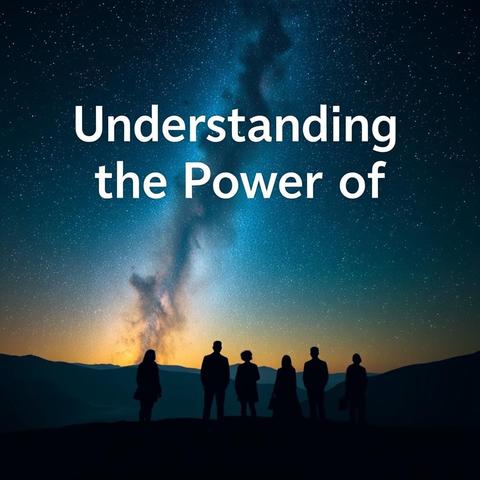Have you ever woken up from a dream feeling profoundly moved, yet utterly bewildered by its imagery? I remember one morning, waking from a dream where I was surrounded by a vibrant, bustling marketplace, each stall overflowing with unique, symbolic objects. It felt intensely personal, yet strangely shared. That’s when I began to grasp the power of shared dream experiences, the potential for collective understanding in group dream therapy. This article delves into the fascinating world of group dream therapy, exploring its benefits, techniques, and how it can facilitate profound personal growth. Are you ready to explore the collective unconscious and unlock the hidden wisdom within your dreams, and the dreams of others?
Understanding the Power of Shared Dreaming

Group dream therapy offers a unique approach to dream interpretation, moving beyond individual analysis to explore the shared symbolism and collective unconscious. It leverages the power of shared experience, creating a supportive environment where individuals feel safe to explore their dreams’ often cryptic messages. The process allows for a richer, multi-faceted interpretation that surpasses what individual analysis might achieve.
The Collective Unconscious and Archetypes
Carl Jung’s concept of the collective unconscious, a universal reservoir of shared human experiences and symbols, forms the foundation of group dream therapy. This shared unconscious manifests in recurring dream themes, archetypes (universal symbolic figures like the hero, shadow, or wise old man), and shared emotional responses to specific dream imagery. In a group setting, participants can recognize these common threads, fostering a deeper understanding of their own dreams within a wider human context. For instance, a recurring dream of flying might represent a shared longing for freedom and transcendence, a theme resonating across cultures and individuals.
The Benefits of Sharing Dreams in a Group Setting
The benefits of group dream therapy extend far beyond mere interpretation. The shared experience creates:
- Enhanced Self-Awareness: Sharing dreams allows participants to examine their emotional responses and subconscious patterns from multiple perspectives. This fosters a deeper understanding of oneself and one’s inner world.
- Increased Empathy and Connection: Hearing others’ dreams and their associated emotions cultivates empathy and understanding. Participants witness the universality of human experiences, fostering stronger connections within the group.
- Validation and Support: Expressing personal dreams in a safe and supportive environment provides validation and a sense of belonging. Knowing others share similar dream experiences can reduce feelings of isolation and confusion.
- Expanded Interpretative Perspectives: Multiple perspectives enrich the interpretation process, providing insights that an individual might miss. Group members offer different interpretations based on their own experiences and understanding of symbolism.
- Skill Development in Dream Interpretation: Participating in group dream therapy develops skills in interpreting one’s own dreams and those of others. This empowers individuals to continue the process independently.
- Creative Problem Solving: Dreams often contain symbolic representations of unresolved issues. The group dynamic allows for collaborative problem-solving, offering creative solutions to personal challenges.
The Dynamics of Group Dream Therapy
A successful group dream therapy session relies on a safe, confidential, and supportive environment. The group leader plays a crucial role in facilitating these dynamics, guiding the discussion and ensuring everyone feels comfortable sharing.
- Scientific Studies on Dream Therapy: Unlocking the Power of Your Subconscious
- Guided Dream Therapy Sessions: Unlocking Your Subconscious for Personal Growth
- Group Dream Therapy: Unlocking Collective Insights and Personal Growth
- How Dream Therapy Works: Unlocking the Secrets of Your Subconscious
- Dream Interpretation Techniques: Unlocking the Secrets of Your Subconscious
The Role of the Group Facilitator/Therapist
The facilitator is not merely an interpreter; they are a guide, providing structure, encouraging active participation, and ensuring respectful communication. Their responsibilities include:
- Creating a Safe Space: Establishing ground rules for confidentiality and respect is essential. This ensures a comfortable atmosphere where individuals feel safe to share vulnerable personal experiences.
- Guiding the Discussion: The facilitator directs the flow of the conversation, encouraging participation from all members while managing the time effectively.
- Offering Interpretative Insights: While avoiding imposing interpretations, the facilitator provides guidance and helps connect personal dream experiences to broader psychological principles.
- Managing Group Dynamics: They ensure respectful and constructive communication, managing potential conflicts or power imbalances within the group.
- Promoting Self-Reflection: The facilitator encourages individual reflection, prompting participants to connect their dreams to their waking lives and emotional experiences.
Group Dynamics and Potential Challenges
While group dream therapy offers numerous benefits, it’s crucial to be aware of potential challenges:
- Power Dynamics: Certain individuals may dominate the conversation, while others remain silent. The facilitator needs to actively manage these imbalances.
- Confidentiality Concerns: Establishing and maintaining clear boundaries regarding confidentiality is critical.
- Emotional Intensity: Dreams can evoke intense emotions. The facilitator must be skilled in managing these emotional responses, offering support and guidance.
- Cultural Differences: Interpretations of dream symbolism can be influenced by cultural background. The facilitator should be sensitive to these differences and encourage open discussions about diverse perspectives.
Practical Applications and Techniques in Group Dream Therapy

The methods employed in group dream therapy vary, depending on the therapist’s approach and the specific needs of the group. However, several common techniques are used:
Sharing and Active Listening
The core of group dream therapy involves sharing dreams in a structured manner. This typically starts with the dreamer recounting their dream in detail, followed by active listening from other group members. Active listening includes paying close attention to both the content and the emotional tone of the dream narrative.
Amplified Dream Sharing and Interpretation
Amplified dream sharing involves not just recounting the dream but also exploring the emotions, sensations, and personal associations that the dream evoked. This deeper level of exploration often unlocks hidden layers of meaning.
Identifying Recurring Themes and Archetypes
Identifying common themes and archetypes across shared dreams is a significant aspect of group dream therapy. This helps participants understand the universality of their experiences and connect their personal dreams to broader human experiences.
Exploring Connections between Dreams and Waking Life
Linking dreams to current events, relationships, and personal struggles allows for deeper self-understanding. This process helps identify recurring patterns and potentially unresolved conflicts that may be manifesting in the dreams.
Collaborative Interpretation and Problem Solving
Collaborative interpretation encourages group members to offer their perspectives on the meaning of a dream, drawing on their own experiences and knowledge of symbolism. This can be particularly helpful in identifying potential solutions to challenges that are mirrored in the dreams.
The Spiritual and Psychological Benefits of Group Dream Therapy
Group dream therapy offers profound benefits for both psychological and spiritual well-being. It promotes:
- Emotional Processing: Sharing dreams provides a safe space to process difficult emotions, fostering emotional regulation and resilience.
- Increased Self-Compassion: Witnessing shared struggles builds self-compassion, reducing feelings of isolation and shame.
- Spiritual Growth: Exploring dreams from a spiritual perspective can enhance one’s sense of purpose and connection to something larger than oneself.
- Improved Mental Health: Dream therapy can positively influence mental health outcomes, particularly for individuals dealing with anxiety, depression, or trauma.
Case Studies and Real-Life Examples
While maintaining client confidentiality, I can share some generalized examples. In one group, several members independently reported dreams involving water – a powerful symbol of emotions. One member dreamed of a raging storm, another a calm lake, and a third a flowing river. Through discussion, they realized the water symbolized their emotional states: the storm represented intense anxiety, the lake peaceful acceptance, and the river a gradual emotional flow. The shared experience helped them better understand and manage their individual emotional landscapes. Another group saw recurring themes of confinement and escape, leading to powerful insights about feeling trapped in their current circumstances and the yearning for personal transformation.
Choosing a Group Dream Therapy Setting: Finding the Right Fit
Finding the right group dream therapy setting is crucial for a positive and beneficial experience. Consider these factors:
- Group Size and Composition: Smaller groups often foster deeper connections, while larger groups offer more diverse perspectives. Consider whether a homogenous or heterogeneous group would be more beneficial to your needs.
- Facilitator’s Experience and Style: Seek out a qualified and experienced facilitator with a style that resonates with you.
- Group Focus and Goals: Different groups focus on various aspects of dream work. Ensure the group aligns with your individual goals and preferences.
- Location and Accessibility: Consider the group’s location, schedule, and accessibility to ensure it fits into your lifestyle.
Conclusion: Embarking on Your Journey of Collective Self-Discovery

Group dream therapy offers a unique and powerful path to self-discovery and personal growth. By sharing dreams in a supportive environment, individuals gain access to a deeper understanding of themselves, their emotions, and their place in the collective human experience. At Dream Therapy Now, we offer a nurturing and insightful environment to explore the depths of your dreams through our specialized group therapy sessions, guided by our expert team. We are dedicated to helping you unlock the hidden wisdom within your dreams and embark on a transformative journey of self-discovery. Contact us today at info@dreamtherapynow.com to learn more about our group dream therapy programs and how we can support your journey towards a more meaningful and fulfilling life. Let us help you unravel the mysteries of your subconscious and transform your dreams into reality.
Dive into our blog to discover a wealth of content that will illuminate the significance of your nocturnal adventures and guide you through the labyrinth of dream symbolism. Impeccable Dream hopes this guide was helpful! If you want to see other blog posts about Dream Therapy Services, here are some that may be of interest to you.